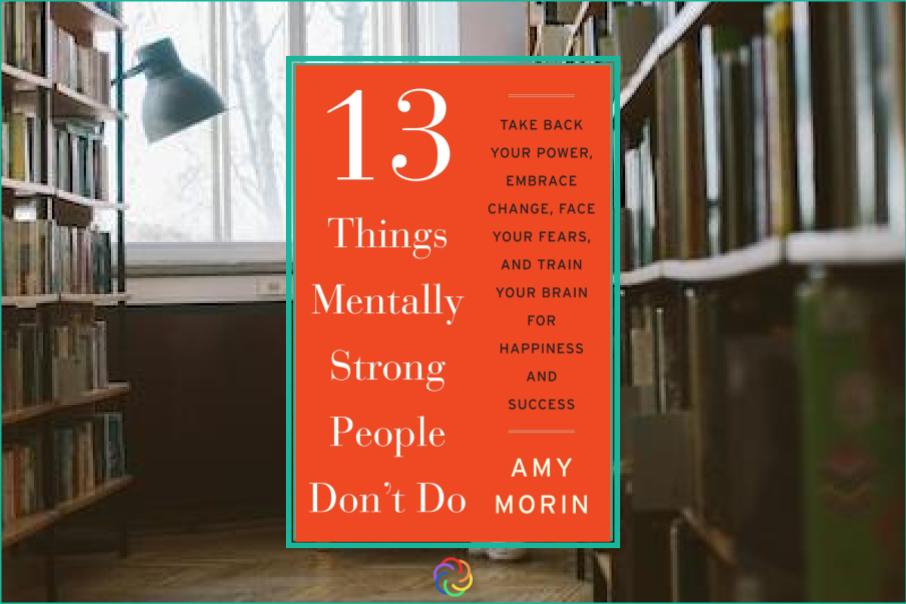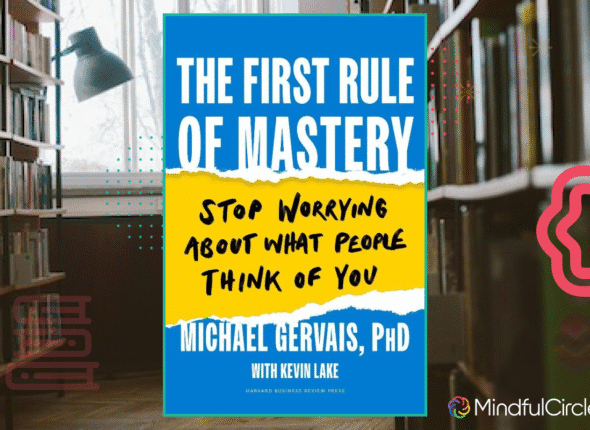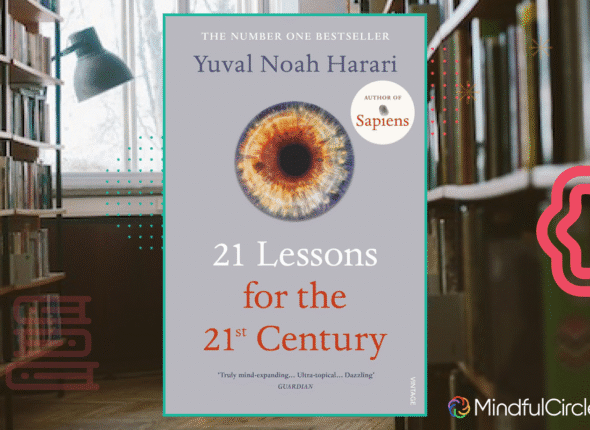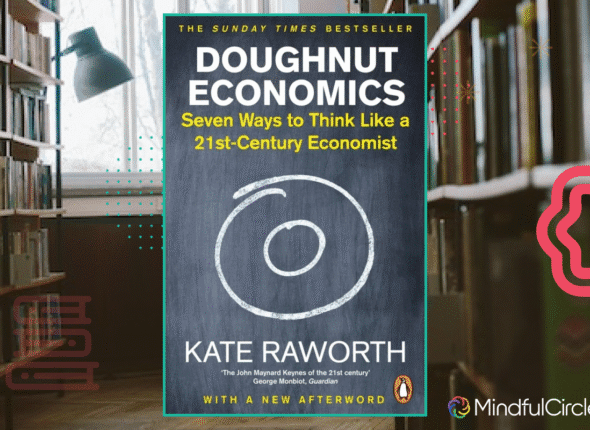13 Things Mentally Strong People Don’t Do: A Comprehensive Guide to Building Resilience
Amy Morin’s 13 Things Mentally Strong People Don’t Do is a transformative self-help book that addresses the habits and thought patterns holding us back from reaching our full potential. The book, a product of Morin’s personal tragedies and professional expertise as a psychotherapist, offers readers a roadmap to developing mental toughness. Initially a viral article read by millions, the book has since been translated into over 40 languages and praised by platforms such as Forbes, Inc., and Psychology Today. It has resonated with individuals across the globe, including leaders, athletes, and everyday readers looking to overcome adversity.
Let’s delve into the book’s core principles, anecdotes, and actionable strategies to uncover the keys to mental strength. This comprehensive summary is designed to give you a full understanding of Morin’s insights, along with examples and practical steps for implementing them in your own life.
What Does Mental Strength Mean?
Mental strength is not about suppressing emotions, denying pain, or being overly optimistic. Instead, it’s about aligning your actions with your values, regulating your emotions, and adopting rational thought patterns. Morin emphasizes that mental strength is like a muscle: it requires continuous effort and the elimination of bad habits that drain our energy.
The Three Destructive Mental Habits
Morin’s framework is grounded in identifying and eliminating three overarching destructive mental habits that undermine resilience:
- Unrealistic Beliefs About the World: These include entitlement and expecting immediate results.
- Unhealthy Thinking Patterns: Such as self-pity, dwelling on the past, and fearing failure.
- Counterproductive Behaviors: Like people-pleasing, avoiding change, and giving away power.
By addressing these three root habits, the book expands into 13 actionable principles for building mental strength.
The 13 Things Mentally Strong People Don’t Do
1. They Don’t Waste Time Feeling Sorry for Themselves
Self-pity is a destructive habit that drains energy and fosters negativity. Instead of lamenting life’s unfairness, mentally strong people cultivate gratitude.
“Gratitude improves physical health, enhances sleep quality, and boosts happiness.”
Example: Marla Runyan, a legally blind long-distance runner, achieved incredible feats by focusing on her capabilities rather than her limitations.
Actionable Tip: Keep a gratitude journal to refocus on the positives in your life.
2. They Don’t Give Away Their Power
Mentally strong individuals retain control over their emotions and decisions. They avoid letting others’ actions dictate their mood or self-worth.
“Reframe your language. Replace phrases like ‘They made me angry’ with ‘I felt angry because….’”
Example: Oprah Winfrey overcame childhood trauma and professional rejection by taking ownership of her narrative.
3. They Don’t Shy Away from Change
Change is often uncomfortable but necessary for growth. Mentally strong people embrace change by breaking it into manageable steps.
“The key to embracing change is breaking it into smaller, achievable goals.”
Example: Judge Greg Mathis turned a troubled past into a successful career, demonstrating the power of transformation.
Steps to Embrace Change:
- Identify a specific area for change.
- Set small, achievable goals.
- Anticipate challenges and plan for them.
4. They Don’t Focus on Things They Can’t Control
Energy is better spent on areas where you can make a difference. By letting go of uncontrollable factors, mentally strong individuals reduce stress.
“Focus on what you can control, and let go of what you can’t.”
Visualization Tip: Draw a circle and list things you can control inside it; write what you cannot control outside. Focus your energy within the circle.
5. They Don’t Worry About Pleasing Everyone
Mentally strong people understand the futility of seeking universal approval. They prioritize authenticity and align their actions with their values.
“Prioritize authenticity over approval.”
Example: Megan, a recovering people-pleaser, learned to set boundaries and focus on her priorities, improving her relationships and mental health.
6. They Don’t Fear Taking Calculated Risks
Risk-taking, when approached thoughtfully, fosters growth and resilience.
“Evaluate risks by analyzing potential outcomes, triggers, and mitigation strategies.”
7. They Don’t Dwell on the Past
Using the past as a learning tool, rather than a source of regret, enables growth. Acceptance and forgiveness are key.
“The past is a teacher, not a prison.”
8. They Don’t Make the Same Mistakes Over and Over
Mentally strong people learn from their mistakes and implement changes to avoid repeating them.
“Document mistakes, identify triggers, and plan alternative responses.”
9. They Don’t Resent Other People’s Success
Envy is counterproductive. Instead, mentally strong individuals use others’ successes as inspiration.
“Celebrate others’ success to foster your own growth.”
10. They Don’t Give Up After the First Failure
Failure is part of the journey to success. Mentally strong people view setbacks as opportunities to improve.
“Failure is a stepping stone to success.”
11. They Don’t Fear Alone Time
Solitude fosters self-reflection and growth. Mentally strong people use alone time to recharge and strategize.
12. They Don’t Feel the World Owes Them Anything
Entitlement leads to frustration. Mentally strong individuals focus on earning success through effort and perseverance.
“The world doesn’t owe you anything\u2014work for what you want.”
13. They Don’t Expect Immediate Results
Patience and persistence are crucial for long-term success. Mentally strong people understand the value of sustained effort.
“Great things take time.”
Criticisms and Counterpoints
Some critics argue that Morin’s book oversimplifies mental health challenges and relies heavily on anecdotal evidence. While the advice is practical, it may not fully address deeper psychological struggles. However, its accessibility and actionable tips make it a valuable resource for many readers.
Conclusion
13 Things Mentally Strong People Don’t Do provides a practical framework for overcoming adversity and building resilience. By addressing the three destructive mental habits and shedding unproductive behaviors, readers can navigate life’s challenges with greater confidence and clarity. Whether you’re facing personal hardships or seeking to improve daily habits, Morin’s principles offer a powerful guide to becoming mentally stronger.
By implementing these strategies, you’ll be better equipped to face life’s storms and discover the strength within to thrive. As Morin reminds us:
“Mental strength isn’t about avoiding difficulties—it’s about how we respond to them.”
View other book summaries you might like
The Creative Act: A Way of Being by Rick Rubin- Book Summary
- December 2, 2025
- Com 0
About the Author: Rick Rubin Rick Rubin is widely regarded as one of the most influential music producers in history....
The First Rule of Mastery by Michael Gervais- Book Summary
- November 25, 2025
- Com 0
The First Rule of Mastery: Stop Worrying about What People Think of You INTRODUCTION The First Rule of Mastery: Stop...
21 Lessons for the 21st Century By Yuval Noah Harari – Book Summary
- November 18, 2025
- Com 0
Introduction: About the Author, the Book, and Its Impact Yuval Noah Harari, an Israeli historian and professor at the Hebrew...
Doughnut Economics By Kate Raworth – Book Summary
- November 11, 2025
- Com 0
Doughnut Economics: Seven Ways to Think Like a 21st-Century Economist By Kate Raworth (2017) About the Author and the Book...
A Biography of Silence: An Essay on Meditation By Pablo d’Ors (2012) – Book Summary
- November 4, 2025
- Com 0
A Biography of Silence: An Essay on Meditation About the Author and the Book Pablo d’Ors is a Spanish priest,...
The Hard Thing About Hard Things By Ben Horowitz – Book Summary
- October 28, 2025
- Com 0
The Hard Thing About Hard Things: Building a Business When There Are No Easy Answers―Straight Talk on the Challenges of...









